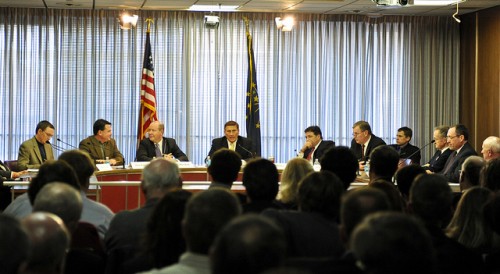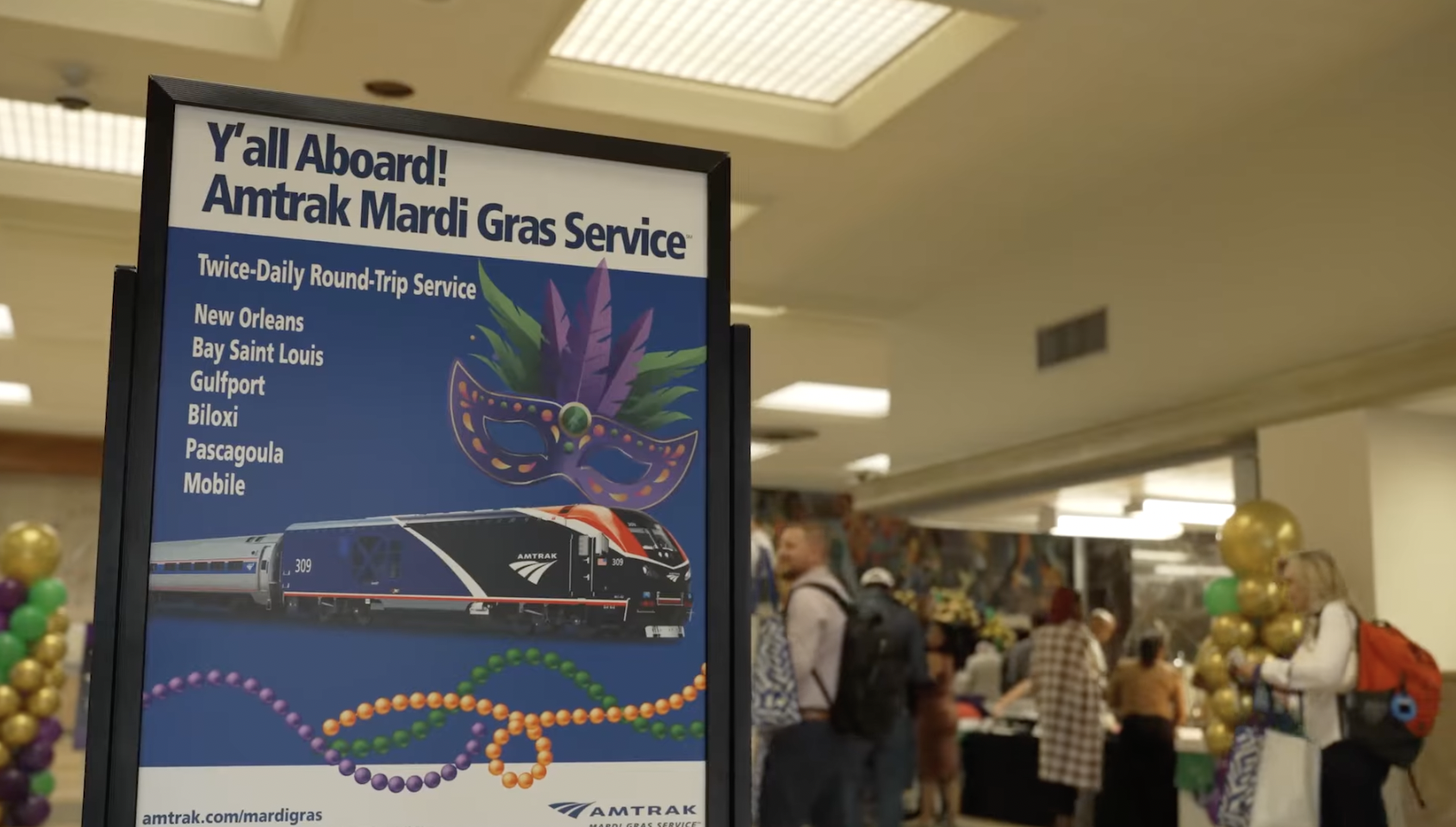Road interests continued to dominate the discussion as members of Congress wound their way through Chicago and Indiana this weekend, gathering feedback for the six-year transportation reauthorization bill.
While Streetsblog couldn't be at every hearing, some of our dedicated Network bloggers were there to document discussions on state and regional transportation priorities, as expressed to the lawmakers.

Curt Ailes at Urban Indy caught the discussion from Indianapolis on Saturday, and was even able to join a group of citizens that addressed the Congressmen, speaking on behalf of the need for federal support of transit.
Ailes said he was impressed with comments made by John Mica (R-FL), who is Chair of the Committee on Transportation and Infrastructure:
Mr. Mica was the most inspiring Republican to speak when he talked about not expanding freeway rights of way for expansion projects. He cited a project in Florida that took the center safety lanes and converted them to general traffic lanes and noticed a 25% gain in capacity with no noticeable rise in accidents. He also pointed out at one point that he comes from business and has done the math on mass transit. This is why he supports spending on it.
But as the meeting continued, Ailes found himself disappointed in the decidedly car-centric state panel, which stood in contrast to members of the public, whose comments focused on livability, transit and other forms of alternative transportation:
It became apparent that all these gentlemen chosen to testify were connected with “road interests.” A trucking lobbyist spoke. A road builder spoke. A couple of engineers involved with the I-69 project in SW Indiana also attended. Frankly, the only non-road official was our Mayor Greg Ballard who ironically kicked off his turn to speak by promoting the biking and walking programs that he has pushed over the past few years here in Indianapolis.
The conversation turned pretty dark when Todd Rokita (R-IN) stated that he thought bike and pedestrian projects should not be funded by federal tax dollars.
Ailes cautioned against giving the state greater control over spending, given its regressive priorities as evidenced by the direction of the panel discussion.
On Sunday, Congressmen reconvened in West Chicago and both the Active Transportation Alliance and the Metropolitan Planning Council were there for the action. Like meetings in Columbus and Indianapolis, however, the Active Transportation Alliance reported that the hearing was heavily focused on the usual suspects: roads and airports, though some significant attention was given to rail as well.
While these projects are important, we hope that the national platform will include ways to reward and support smart local land use planning that is more sustainable and includes opportunities for active transportation.
The Active Transportation Alliance said they would be submitting suggestions to the committee which will emphasize the need for bike and pedestrian programs, Safe Routes to School, Congestion Mitigation and Air Quality funding and Transportation Enhancement Programs -- an important source of funding for trails.
Rep. Mica invited not only those the panelists but anyone from the general public to make suggestions for the upcoming bill, which he promised will be under discussion when Congress reconvenes.
Also submitting recommendations from Chicagoland was Peter Skosey of the region's Metropolitan Planning Council. Skosey echoed comments made by a number of panelists throughout the hearings about the lack of strategic investment on the part of state transportation programs. He suggested innovative solutions like the merit-based programs put forward by the Obama Administration:
Today, we spend transportation dollars based on arbitrary formulas divided into isolated silos that fragment road, highway, transit, rail, bike, and pedestrian projects. Instead, we should be making targeted investments that advance coordinated regional goals and a strong national vision that outlines clear priorities for our transportation system. Precisely because there is a limited supply of federal dollars, we must evaluate potential investments based on their ability to reduce hours spent in traffic, curb emissions, and connect affordable homes and jobs, similar to the federal TIGER program.
Transportation Committee field hearings continue today in California.





